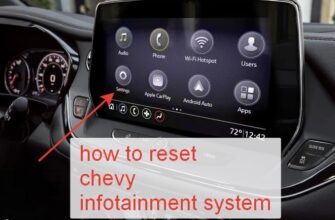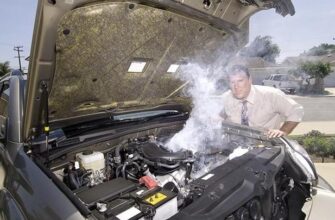If you own a Chevrolet Equinox, especially one from roughly the 2010 to 2017 model years with the 2.4L Ecotec engine, you might be all too familiar with constantly checking and topping off your engine oil. It feels like your truck is drinking oil faster than gasoline! Excessive oil consumption is a frustrating problem that can lead to low oil levels, potential engine damage, and that embarrassing puff of blue smoke from the exhaust.
You’re not alone if you’re dealing with a Chevy Equinox excessive oil consumption issue. This has been a widely discussed and acknowledged problem with specific versions of the 2.4L Ecotec engine used in the Equinox (and its sibling, the GMC Terrain). The good news is that the causes are well-understood, even if the fixes can sometimes be involved.
Let’s dive into why your Chevy Equinox is burning oil, what symptoms to look for, and explore the potential solutions, from simple maintenance to more significant repairs.
Why is My Chevy Equinox Consuming So Much Oil? The Root Causes
The primary reasons behind the notorious Chevy Equinox oil consumption issues in the 2.4L Ecotec engine can usually be traced back to a couple of main areas:
1. Defective Piston Rings (The Most Common Culprit)
This is the big one, widely cited as the main reason for Chevy Equinox oil burning. The original design of the piston rings, particularly the oil control rings, was flawed in certain production runs of the 2.4L Ecotec engine.
- Why it happens: The oil control rings are designed to scrape excess oil from the cylinder walls as the piston moves. If these rings are poorly designed or prone to sticking and clogging with carbon deposits, they fail to perform this scraping action effectively. This leaves too much oil on the cylinder walls, which then gets burned up during the combustion cycle.
- What it leads to: This direct burning of oil is the main source of the excessive consumption. It reduces the oil level in the crankcase and produces tell-tale blue smoke from the exhaust.

2. PCV System Issues
The Positive Crankcase Ventilation (PCV) system is designed to vent blow-by gasses from the crankcase into the intake manifold to be re-burned. Problems with this system can contribute to oil consumption.
- Why it happens: If the PCV valve or its passages (including small orifices in the intake manifold) become clogged, it can create excessive vacuum in the crankcase. This high vacuum can pull more oil vapor (or even liquid oil) from the valve train or crankcase into the intake manifold, where it’s burned along with the fuel.
- What it leads to: While sometimes a secondary issue to the rings, a malfunctioning PCV system can definitely exacerbate the Ecotec 2.4 oil burning problems.
“My 2012 Chevy Equinox started using a quart of oil every 800 miles around 90,000 miles. My mechanic said it’s a super common problem with the piston rings on these 2.4L engines.” – Sarah, 45, Equinox Owner
Other less common factors like worn valve guides or seals could also contribute, but the piston rings and PCV system are the primary suspects for widespread excessive consumption in these engines.
Symptoms of Excessive Oil Consumption
How do you know if your Chevy Equinox is consuming too much oil? Besides constantly needing to add more, here are the classic symptoms of oil burning Chevy Equinox:
- Frequent Low Oil Level: The most obvious sign. You check your dipstick, and the oil level is consistently low well before the recommended oil change interval.
- Oil Pressure Warning Light: In severe cases, if the oil level drops too low, you might see the “Low Oil Pressure” warning light or message on your dashboard. Ignoring this can lead to severe engine damage.
- Blue Smoke from the Exhaust: This is a tell-tale sign of oil being burned in the combustion chamber. You might notice it particularly on startup or during acceleration.
- Fouled Spark Plugs: Oil burning can leave deposits on the spark plugs, leading to misfires, rough idle, or reduced engine performance.
- Check Engine Light: Oil consumption can eventually trigger various diagnostic trouble codes (DTCs), leading to the illumination of the Check Engine light. Codes related to misfires, O2 sensors, or catalytic converter efficiency (like P0420, discussed in our guide Diagnosing and Fixing the P0420 Catalytic Converter Efficiency Code) are common because excessive oil burning damages these components.
Is There a Fix? Exploring the Solutions
Addressing Chevy Equinox oil consumption can range from simple, temporary measures to more involved and costly repairs.
1. Perform an Oil Consumption Test
If you suspect your Equinox is burning oil excessively, the first step is usually to perform a formal oil consumption test Chevy Equinox. This involves topping off the oil, sealing or marking the fill point, driving a specified distance (usually 1,000 to 2,000 miles), and then having the oil level measured to determine exactly how much oil was consumed over that distance. GM has specific procedures for this outlined in Technical Service Bulletins (TSBs).
2. Address PCV System Issues
Sometimes, cleaning or replacing PCV system components, particularly the small orifice in the intake manifold, can help reduce consumption if PCV issues are a contributing factor. This is a less expensive potential Chevy Equinox oil consumption fix. However, if the primary problem is worn piston rings, addressing the PCV system alone may not solve the excessive oil burning.
3. Attempt Engine Cleaning (“Piston Soak”)
Some owners and mechanics have attempted internal engine cleaning procedures (often called a “piston soak”) using chemical cleaners introduced into the cylinders to try and free up stuck piston rings. Success with this method varies and is often temporary, particularly in cases of significant ring wear. It’s not a guaranteed fix for the underlying design issue.
4. Replace Pistons and Piston Rings (The Most Effective Repair)
The most widely recognized and effective repair for excessive oil consumption in the affected 2.4L Ecotec engines involves disassembling the engine’s lower end and installing updated pistons and redesigned piston rings.
- What it involves: This is a significant mechanical repair that requires removing the cylinder head and oil pan to access the pistons and connecting rods. The original pistons and rings are replaced with improved versions designed to better control oil.
- Why it works: The updated piston rings have a better design that is less prone to clogging and more effective at managing oil on the cylinder walls.
- Cost: This is a costly repair, often ranging from $2,000 to $4,000 or more depending on labor rates and if other components need addressing while the engine is apart.
“After fighting the oil consumption on my 2011 Equinox for months, adding a quart every week, I finally bit the bullet and had the pistons and rings replaced with the updated parts. It was expensive, about $3500, but Noah, 52, the mechanic said it’s the only real fix for the problem. It stopped burning oil completely after that.” – A satisfied owner after a major repair
5. Engine Replacement
In cases of very high mileage, severe oil consumption leading to other damage, or if the cost of internal repair is prohibitive, replacing the entire engine (with a new, remanufactured, or used engine that ideally has the updated components) might be considered.
GM’s Response: TSBs, Extended Warranties, and Lawsuits
General Motors acknowledged the oil consumption problem in certain 2.4L Ecotec engines and issued Technical Service Bulletins (TSBs) to dealers outlining the issue and the repair procedure involving the updated pistons and rings. They also offered special coverage adjustments or extended warranties for some affected vehicles to cover the cost of this repair within a certain age or mileage limit.
There have also been class-action lawsuits related to the Chevy Equinox oil consumption lawsuit issue, arguing that GM should have covered the repair for a broader range of vehicles or for a longer period. While some settlements have provided limited reimbursement, they often didn’t cover all affected owners or the full cost of engine repairs or replacements caused by the issue. Checking for applicable TSBs for your specific year and VIN is a good first step, though coverage under extended warranties may have expired for many older vehicles.
Don’t Ignore Excessive Oil Consumption
It might be tempting to just keep adding oil, but ignoring excessive oil consumption can lead to more serious and expensive problems down the road:
- Engine Damage: Running the engine with a consistently low oil level can cause increased wear on critical internal components due to lack of lubrication, potentially leading to premature engine failure.
- Catalytic Converter Failure: Burning excessive oil will quickly damage and clog the catalytic converter, which is a very expensive component to replace. This will likely trigger a Check Engine light with codes like P0420.
- Reduced Performance and Fuel Economy: Oil burning can affect combustion efficiency.
If your Equinox is using more than a quart of oil every 1,000-1,200 miles (and GM’s older ‘acceptable’ rate was sometimes cited even higher, which many owners disagreed with), it’s generally considered excessive and warrants investigation beyond just topping it off.
For potential visual guides on diagnosing or addressing this issue, searching platforms like YouTube for “[Chevy Equinox oil consumption fix]” can show videos demonstrating symptoms, oil consumption tests, or even aspects of the repair process.
If your Check Engine light comes on, understanding common codes is important. Excessive oil consumption can sometimes relate to issues that trigger codes like the P0171 Lean Code or the aforementioned P0420 Catalytic Converter code. Learning how to diagnose a flashing Check Engine light (even though that guide is for a Jeep, the general principles of warning lights apply) is valuable.
Frequently Asked Questions (FAQ)
Q: Is some oil consumption normal for an engine?
A: Yes, a small amount of oil consumption is considered normal for most engines as a tiny amount of oil is used for lubrication in the combustion process. However, consuming a quart every 1,000 miles or less is generally considered excessive by modern standards.
Q: What model years and engines of the Chevy Equinox are most affected by oil consumption?
A: The excessive oil consumption issue is most commonly associated with the 2.4-liter Ecotec engine found in Chevrolet Equinox and GMC Terrain models from roughly 2010 through 2017.
Q: How do I know if my Equinox has excessive oil consumption?
A: The main signs are frequently needing to add oil between changes, especially if you’re adding a quart or more every 1,000-1,200 miles, seeing blue smoke from the exhaust, or experiencing related issues like a Check Engine light for catalytic converter codes.
Q: What is the most effective fix for Chevy Equinox oil consumption?
A: The most effective and long-term solution for excessive oil consumption caused by the defective piston rings is typically replacing the original pistons and piston rings with updated, redesigned parts, as outlined in GM’s technical service bulletins.
Q: Can a PCV valve fix Chevy Equinox oil consumption?
A: Replacing or cleaning the PCV system can sometimes help reduce oil consumption if PCV issues are contributing. However, it is often not a complete fix if the primary problem is the defective piston rings, which is common for this engine.
Conclusion
Excessive oil consumption in the Chevy Equinox, particularly with the 2.4L Ecotec engine from certain years, is a well-known and frustrating issue often caused by defective piston rings and sometimes exacerbated by PCV system problems. While adding oil regularly can keep the engine lubricated in the short term, it doesn’t address the root cause and can lead to expensive damage like a failed catalytic converter. The most reliable long-term Chevy Equinox oil consumption fix involves replacing the internal engine components with updated parts. If your Equinox is drinking oil excessively, performing an oil consumption test is the first step. Consult a trusted mechanic who is familiar with this specific issue in GM’s Ecotec engines to explore the best course of action for your vehicle. Addressing this problem properly will not only save you money on oil but also protect your engine and emissions system in the long run.








